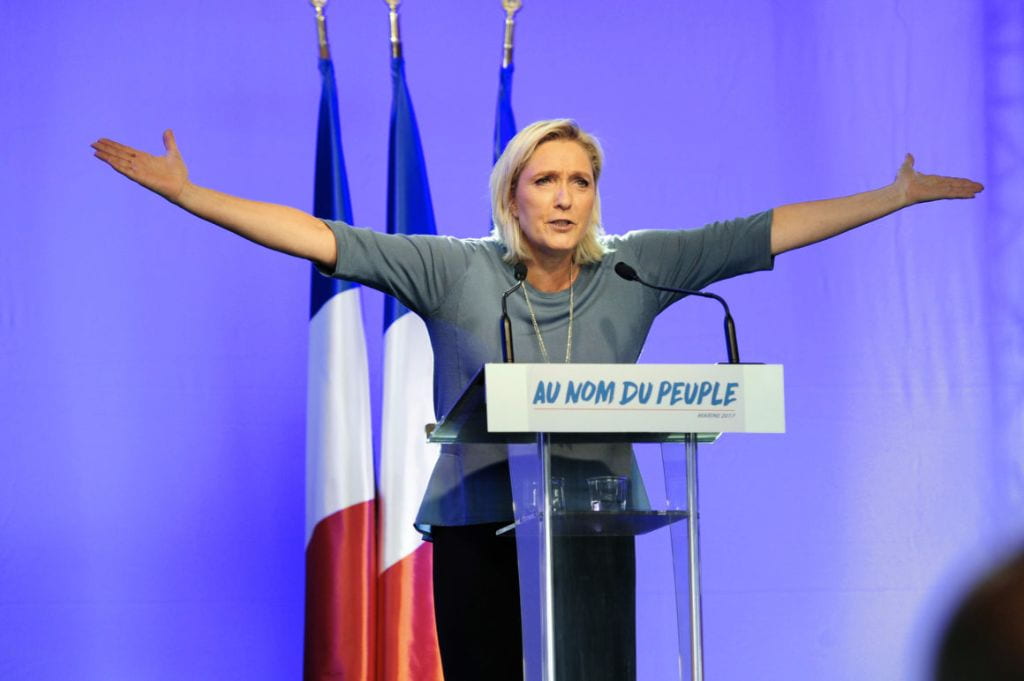BY KATHLEEN MURPHY – STAFF WRITER
With polls for the first round of the elections set to open April 23, two of the main contenders in the French presidential elections find themselves tangled in allegations of misuse of public funds and promoting violent imagery online. Until recently the top contender, François Fillon of the conservative Les Républicains party now faces investigations into his employment of close family members, specifically payments of government money to his wife for work she allegedly did not do. The nationalist party, Le Front National’s candidate Marie le Pen faces criticism for her tweets showing pictures of journalist James Foley’s beheading by ISIS. Recently, the European Parliament voted to remove her immunity from prosecution related to these images, which could result in up to three years imprisonment and a fine of 75,000 € ($78,800) under French law. Her party also faces allegations of misuse of European Union (EU) funds.
While these allegations appear to question the viability of each candidate–Fillon has encountered increasing pressure to step down, even from his own party, Centre-in-Strasbourg’s resident European institutions professor, Dr. Pierre Nuss suggests more political motivations. He notes that these scandals “are ‘non-events’ and have a political origin.” Concerning Fillon’s allegations, many French members of parliament who support these charges employ or have employed members of their own family as well. As for Le Pen, while several judges have moved recently and quickly to open preliminary investigations, the European Parliament’s lifting of her immunity represents a purely political statement.
With a general distaste of this kind of politics, the French public looks on, regarding unfavorably what Nuss calls “la politique politicienne.” Comparable to the American concept of Washington “insiders,” this mindset has pushed well-known political names out of the race, with former President Nicolas Sarkozy and former Prime Minister Manuel Valls losing primaries earlier in the year. The incumbent, François Hollande decided not to run in December of last year as his abysmal approval rating would likely cost his party, the Socialists, the presidency.
Instead, polls have shown public favor leaning towards more outsider candidates like Le Pen, whose party has never governed before and Emmanuel Macron, who has never run for office before and formed his party, En Marche! (Onwards!) only last year. Macron, former economic minister to Hollande, is the youngest candidate. He promotes himself as a centrist with pro-business policies and leftist social views. On the other hand, Le Pen, a member of the European Parliament, has a much more nationalist and Euroskeptic stance, emphasizing increased immigration restrictions and calling for a referendum on French EU membership.
Other candidates of interest include the Socialist and farthest left candidate Benoit Hamon who has proposed increasing and altering the system of welfare payments, rolling back a new labor law that eased hiring and firing restrictions and legalizing marijuana. Additionally, Jean-Luc Melenchon, a current Left Party member of the European Parliament, has also thrown his hat in the ring, backed by the Communist Party, after a loss in the 2012 presidential elections.
Interestingly enough, several anonymous Parisians have started a petition for former US President Barack Obama. The online petition has attracted almost 49,000 signatures as of March 5. Although the site seems quite serious and even has campaign merchandise stamped with “Obama17” in blue, white and red, in a BBC interview the organizers have insisted they would like the campaign to remain a joke. They also claim their campaign aims to make a statement about the lack of exciting presidential candidates. Even though Obama is not eligible to run for election in France, the campaigners find that Obama’s two campaigns with messages of hope and change had an element of inspiration lacking in France’s current political realm.
Overall, in the wake of political scandals, the polls remain very much uncertain about the next French president. However, Nuss has his eye on Macron, seeing him as the favorite since Fillon’s fall. Despite the strength Le Pen has shown in recent polls, Nuss suggests that her party “will gain members of parliament,” waiting for 2022 to fully set its sights on the presidency. These gains are probable considering the unpopularity of Hollande’s Socialists and the disarray of Les Républicians leaves the two main parties disorganized. While many Frenchmen and women look on their political choices with apathy or disappointment, they will likely remain unable to find a more popular candidate. Obama is–after all–quite comfortable in his retirement.
